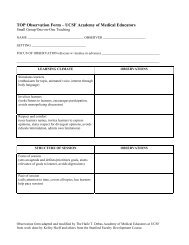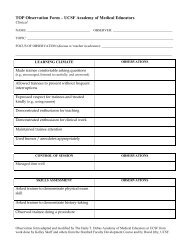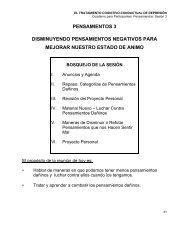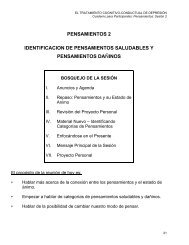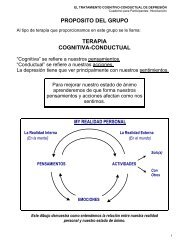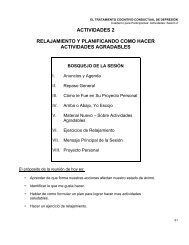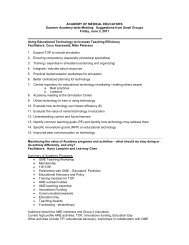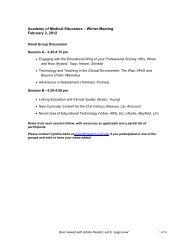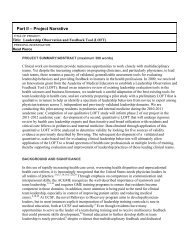The Healthy Management of Reality - Stanford University
The Healthy Management of Reality - Stanford University
The Healthy Management of Reality - Stanford University
Create successful ePaper yourself
Turn your PDF publications into a flip-book with our unique Google optimized e-Paper software.
It is important, therefore, to appraise the consequences <strong>of</strong> acting on whatappear at first glance to be unassailable principles. If the consequences <strong>of</strong> ourbeliefs are likely to produce more harm than good, we need to reconsider ourbeliefs. We cannot abdicate our responsibility to judge our actions by relyingentirely on formulas <strong>of</strong> behavior (or, more accurately, our particular interpretation<strong>of</strong> these formulas).<strong>The</strong> difficulty with having to use our judgment on a continuous basis is thatwe know we are not perfect, and thus, our judgement could potentially lead usastray. Having an infallible source <strong>of</strong> moral certainty is certainly tempting. It cando away with the danger <strong>of</strong> everyone doing whatever they please, merely bydeclaring it the good, as they see it.As far as I can determine, there is more consensus about what is good thanwe usually realize. Those areas in which there is great controversy are <strong>of</strong>ten moresalient to us precisely because they are controversial. <strong>The</strong> vast areas that mostpeople and cultures agree on are taken for granted. If in our practice <strong>of</strong> thepresence <strong>of</strong> good, we focused only on the areas in which there is consensus, wewould be able to deal with the vast majority <strong>of</strong> the situations we face each day.But it is true that there would be a few areas that would be difficult to address.What about them?Here we return to the notion that reality is infinite, and we are finite. We asindividuals and we as a species have much to learn yet. It is not healthy to expectthat we will ever have all the answers. Just as in the areas <strong>of</strong> physical and socialscience, technology, and economics, we are constantly learning more andcorrecting errors from the past, so also in the areas <strong>of</strong> moral and ethical values wecan look forward to progress. I certainly hope that one thousand years from nowHMOR.July2005.Muñoz.doc 101



